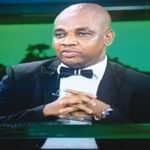There is no one who can choose his parents, but you can choose who your role model is. No one can change his parents just as no parents can change their child. Each party among us is stuck with who we have – as either parents or children, a kind of “what you see is what you get” situation. These postulations are barring people’s shenanigans. People bear names that are not theirs in many situations. Some will migrate to other lands and put life to “you bear the name you wish in a foreign land” postulation of the Yoruba. We have them everywhere and even as our leaders.
However, you can choose who your role model is. You can also decide to change your role model. They are not your parents. You may grow with an ideology as espoused by your role model but you may arrive at a point in your life when that ideology or role model is seen as a(n) obvious farce. That was what Thomas Sowell did. He changed his role model and abandoned some of those ideologies that had fuelled his excellent academic drive. He stopped being an acolyte of Karl Max and got a new thinking which became his and which he vigorously espoused, even after degrees in Harvard and Columbus on Marxism.
There are many Nigerians like that in today’s reality. They started as strong advocates of the government of Muhammadu Buhari. Millions of people shouted so loudly the need to bring in Buhari as the president so that corruption, impunity and insecurity can be killed in Nigeria. But now, nearly seven years after he came on a blaze of glory he has been demystified. As the country is dragging languidly through to the denouement of his administration, many have abandoned their initial contention that Buhari was the best thing that would happen to Nigeria. There are new, varied thinking on how bad he has turned out as the president of the country. Whatever whiffs of relief Nigerians had, as crumbs from government, have been buried in the rubble of insecurity and crashed economy. He had long ceased to be many people’s role model. They now rate him worse than his bad predecessors. Buhari could not have been said to be the ideological compass of many people though.
The hugely successful economist, Thomas Sowell, left concrete, remarkable marks in Harvard University, Columbia University and University of Chicago. Forbes magazine said in 2015: “It’s a scandal that economist Thomas Sowell has not been awarded the Nobel Prize. No one alive has turned out so many insightful, richly researched books. His latest is another triumph of crackling observations that underscore the ignorance of our economists and policymakers. His take on how culture, geography, politics and social factors affect how societies progress–or don’t–will rile those addicted to political correctness but leave everyone else wiser.” Nobel Laureate Milton Friedman taught Sowell at Chicago. He was already over a decade as professor at Chicago before Sowell came. Friedman noted: “The word ‘genius’ is thrown around so much that it’s becoming meaningless, but nevertheless I think Tom Sowell is close to being one.”
The example might as not have been Sowell. It could have been anyone else who turned from one belief to another. But it is clearly safe to dwell on a university scholar who is seen as having based his conclusions on empirically verifiable research findings and evidence. It is dangerous to cite the example of turncoat politicians and active political players. It is even more dangerous to use Nigerian politicians as examples in ideological shift. They’d be called names without a deep search into their reasons. Nigerian politicians are always on the fast lane to inordinate classification. They either end up as ‘derailed’ or ‘disloyal’. They, however, most often end up being seen as having changed course because of pecuniary considerations. It is not always so in the academia.
John Steele Gordon, writing for The New Criterion on the biography of Sowell, written by Jason S. Riley, said: “Sowell would self-identify as a Marxist throughout his 20s. His senior thesis at Harvard was on Marxian economics, and his master’s thesis at Columbia was on Marxian business cycle theory. Even his first scholarly publication, in the March 1960 issue of American Economic Review, was on the writings of Karl Marx. But like many others who are attracted to Marxist philosophy in their youth, Sowell would abandon it as he became older and more experienced.” Sowell said he was “rethinking the whole notion of government as a potentially benevolent force in the economy and society.”
The interest in Karl Marx, Gordon said: “Had started in Sowell’s late teens. It’s not hard to contemplate why a black person born during the Great Depression in the Jim Crow South and then raised in urban ghettos might find the precepts of Marxism persuasive. The cruel capitalists, the greedy bourgeoisie, the oppressed masses, the coming revolution that will finally relieve the struggling proletariat from despair—this outlook had a certain appeal to Sowell. “These ideas seemed to explain so much and they explained it in a way to which my grim experience made me very receptive,” Sowell later wrote.
However, he didn’t abandon Marxism or socialism “because he was bamboozled by his Chicago professors.” Rather, experience in the real world of labour market “played a role as a turning point in my ideological orientation.” He said: “After a year at the University of Chicago, including a course from Milton Friedman, I remained as much of a Marxist as I had been before arriving. However, the experience of seeing government at work from the inside and at a professional level started me to rethinking the whole notion of government as a potentially benevolent force in the economy and society. From there on, as I learned more and more from both experience and research, my adherence to the visions and doctrines of the left began to erode rapidly with the passage of time.”
The trajectory of the abandonment of an ideology for another, and the relinquishing of Karl Max as role model by Thomas Sowell forms the fulcrum of this column’s thoughts. With new insights and realisation, one can abandon one’s originally held beliefs. One can change one’s role model. From Friedman’s contention on ‘genius’ we can infer the same contention for the word ‘integrity’ as is commonly bandied by Nigerian politicians. Integrity means nothing or has a new meaning because those Nigerian leaders who use the word and claim its meaning are far removed from its ideals.
Chief Bisi Akande must be some people’s role model. At nearly 83 years of age, he should have quite a number of people following his footsteps. It is heartening that Chief Akande is reading the varied reactions to his autobiography “My Participations” by himself; but it must be disheartening for him reading what nearly everyone is saying about him and his book, at his age. I held Akande in high esteem and saw him in the mould of Chief Abraham Adesanya, Chief Bola Ige, Chief Gani Fawehinmi, Alhaji Lam Adesina. These were the people we read about, who were the voices of courage we listened to as undergraduates who knew some of the things that went on during the years of military dictatorship. Now, like Sowell, I am not a fan anymore. If at about 83, Chief Akande could be deflecting issues vexing the country and act as if his book was dictated to him, I wonder when he wants us to begin to see him as a father. He should not “call dog a monkey for us…”
YOU SHOULD NOT MISS THESE HEADLINES FROM NIGERIAN TRIBUNE
We Have Not Had Water Supply In Months ― Abeokuta Residents
In spite of the huge investment in the water sector by the government and international organisations, water scarcity has grown to become a perennial nightmare for residents of Abeokuta, the Ogun State capital. This report x-rays the lives and experiences of residents in getting clean, potable and affordable water amidst the surge of COVID-19 cases in the state…
Selfies, video calls and Chinese documentaries: The things you’ll meet onboard Lagos-Ibadan train
The Lagos-Ibadan railway was inaugurated recently for a full paid operation by the Nigerian Railway Corporation after about a year of free test-run. Our reporter joined the train to and fro Lagos from Ibadan and tells his experience in this report…
WATCH TOP VIDEOS FROM NIGERIAN TRIBUNE TV
- Let’s Talk About SELF-AWARENESS
- Is Your Confidence Mistaken for Pride? Let’s talk about it
- Is Etiquette About Perfection…Or Just Not Being Rude?
- Top Psychologist Reveal 3 Signs You’re Struggling With Imposter Syndrome
- Do You Pick Up Work-Related Calls at Midnight or Never? Let’s Talk About Boundaries







